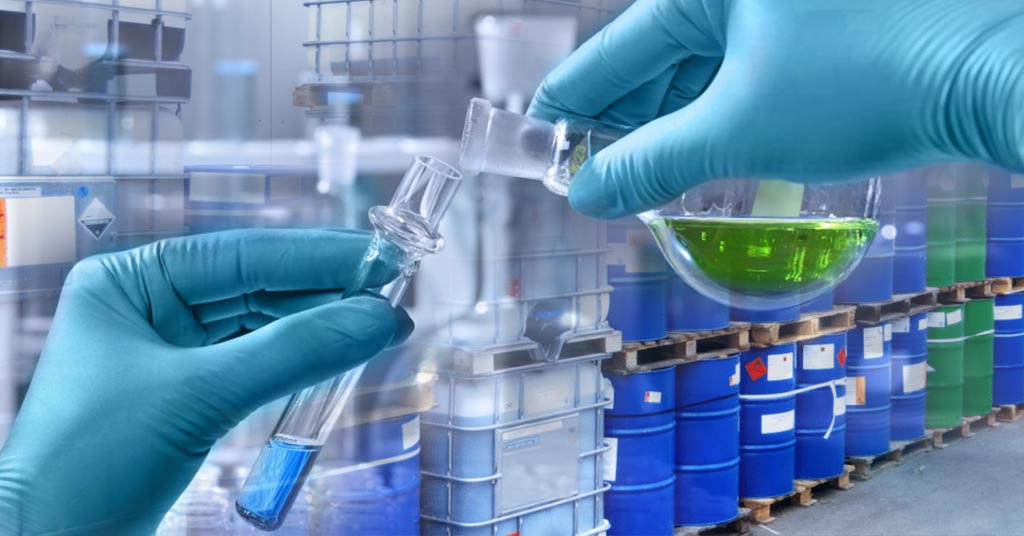Welcome To ChemAnalyst

Germany: The high gas prices and the ongoing Russian aggression in Ukraine have had an unexpected effect on Germany's environment. Data from the Federal Statistical Office shows a sharp decline in fertilizer sales. Farmers seem to be particularly hesitant to invest in fertilizer this year, which could result in poorer harvests. However, it is also likely that this will lead to decreased Nitrogen levels entering the groundwater.
Fertilizers are an essential component of successful agricultural production, and there are three key types - Nitrogen (N), Phosphate (P), and Potassium (K). These come in different concentrations and combinations, with Nitrogen being the most widely used due to its importance for plant growth. Unfortunately, 2021/22 saw a 13% decline in fertilizer sales overall, dropping down to 1.1 million metric tons.
Fertilizer sales in Germany have seen unprecedented decreases this year. Phosphate fertilizer sales fell by 40 percent to just under 115,000 metric tons and Potash decreased by 31 percent to 306,000 tons. This decrease is largely attributed to the sharp rise of gas prices before the beginning of the war in Ukraine. The rise had caused fertilizer manufacturers to reduce production or shut down plants altogether. As a result, fertilizer prices had doubled in the fall of 2021 and reached an all-time high.
In 2019/2020, the producer price for wheat - the most important crop in Germany - was below 200 euros per ton. But after the Ukraine war began and the Russian invasion followed, producer prices skyrocketed to over 400 euros per ton. This initially seemed less painful than feared at the beginning of the war, so fertilizing became a worthwhile endeavor for farmers despite the high costs. An agricultural expert at management consultancy BCG confirms this.
In Spring 2022, there were concerns that certain types of fertilizer would be scarce. However, since the fourth quarter of 2022 there has been an opposite trend: falling fertilizer prices. This can be attributed to lowered energy costs which reduced production costs and a decline in demand from farmers, leading to an oversupply of fertilizer on the market.
Farmers who had the foresight to prepare for sustained high fertilizer prices last year are now struggling due to a steady decline in producer revenues from grain and oilseeds. Currently, wheat prices in Bavaria range from 230 to 250 euros a ton, leaving many farmers with the dilemma of producing at expensive fertilizer costs with diminished grain income.
Not only will the reduction of fertilizer use benefit environmental authorities, but also those involved in drinking water supply, food production and beer brewing. Although nitrate levels in groundwater are not solely caused by agriculture, fertilization still plays a major role.
Farm yields have been high in recent years despite the decrease in Nitrogen fertilizer use. However, environmental activists are warning that further reductions could lead to poor harvests and quality losses. As a result, the EU is calling for a 20% reduction in fertilizer use. Farmers are increasingly turning to new technologies such as precision farming to reduce their reliance on chemicals and become more cost efficient at the same time. By investing in these tech solutions, farmers can still maintain yields without having to use as much chemical fertilizer.
Farmers can now measure or detect Nitrogen levels in the soil with the help of "N sensors" in the field and Earth observation satellites. This technology enables them to avoid overfertilization; however, such high-tech methods involve expensive investments.
In Europe, fertilizer imports are increasing, even though the EU wishes to achieve the opposite goal. One of the reasons for this growing dependence is that gas prices in Europe are much higher than international averages. As a result, several European manufacturers have reduced their production of Ammonia, an essential component for fertilizer manufacturing.
Germany has seen a dramatic rise in the imports of Nitrogen fertilizer, according to a recent report. Over the period of July 2022 to January 2023, a total of 350,000 tons of three types of fertilizer were imported - an increase of almost nine times compared to three years ago.
We use cookies to deliver the best possible experience on our website. To learn more, visit our Privacy Policy. By continuing to use this site or by closing this box, you consent to our use of cookies. More info.
